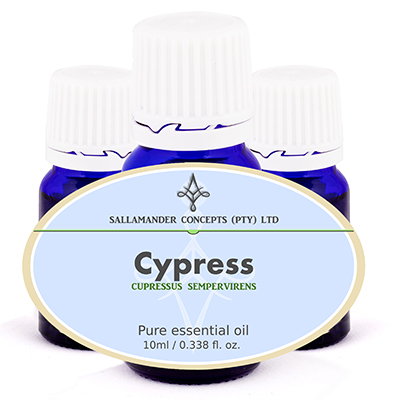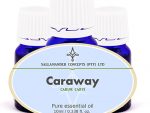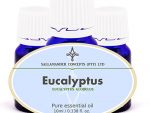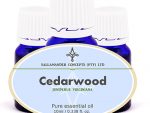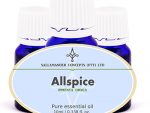Cypress essential oil
Cypress essential oil is from Cupressus sempervirens of the Cupressaceae family and is also known as Italian or Mediterranean cypress.
Cypress Essential Oil, clear and fresh smelling, is a great boon to use during times of major upheavals and changes in your life, as it restores calm, soothes anger and making your life flow better. It has a positive effect on excess fluids in general, thereby improving circulation, sorting out coughs and bronchitis. It assists with varicose veins and female problems and is definitely an oil to have around.
Oil Properties
Cypress essential oil has a woody, slightly spicy and refreshing masculine smell. The oil is colorless to very pale yellow in color and watery in viscosity.
Origin
The tree is a perennial tree, conical-shaped, about 28 meters (80 feet) high and originated from the East, now mostly found in gardens and cemeteries in the Mediterranean region. It is an evergreen tree with dark green foliage, small flowers and round brown-gray cones with seed nuts inside. The wood is hard and durable, red-yellow in color. The Phoenicians and Cretans used the wood for building ships and houses, while the Egyptians made sarcophagi from it and the Greeks used it to carve statues of their gods. The Greek word ‘Sempervirens’, from which the botanical name is derived, means ‘lives forever’ and the tree also gave its name to the island of Cypress, where it used to be worshipped. The legend says the cross of Jesus had been made of cypress wood and the tree generally seems to be associated with death or the cycle of life.
Extraction
Cypress oil is extracted from the needles and twigs of young branches by steam distillation and yields 1.3 – 1.5 %.
Chemical composition
Some of the main components of cypress oil are α-pinene, δ-3-Carene, Cedrol, α-Terpinyl acetate, Terpinolene, (+)-Limonene and β-Pinene
Precautions
The oil is considered non-toxic, non-irritant and non-sensitizing. If this oil oxidises it will definitely irritate the skin – we recommend that extra care be taken with storage of this essential oil – it should be stored in a dark, cool place (preferably the fridge at around 4° Celsius
(around 39° Fahrenheit).
Please read our page with heading: Safety with Essential Oils before using this oil.
We recommend the following book as an excellent resource regarding safety:
Essential Oil Safety: A Guide for Health Care Professionals by Robert Tisserand & Rodney Young (#ad)
Therapeutic properties
The therapeutic properties of cypress essential oil are astringent, antiseptic, antispasmodic, deodorant, diuretic, haemostatic, hepatic, styptic, sudorific, vasoconstrictor, respiratory tonic and sedative.
Uses
Cypress essential oil has a calming and soothing effect on the irritable, angry and stressed-out person.
It has a valuable effect as a vasoconstrictor on varicose veins and hemorrhoids.
It is beneficial in conditions of excess fluid, such as bleeding, nosebleeds, heavy menstruation, heavy perspiration, cough and bronchitis, hemorrhages and fluid retention.
The antispasmodic action is very useful for asthma, whooping cough, bronchitis, emphysema and influenza.
Cypress oil soothes muscular cramps, helps to regulate the menstrual cycle, helps to ease arthritis and rheumatic pain and it is also beneficial to oily as well as congested skin and wounds.
Burners and vaporizers
Cypress essential oil is useful in vapor therapy for all breathing difficulty, such as asthma, emphysema, whooping cough and bronchitis. It also helps to calm the mind and dispel anger.
Blended Massage Oil or in the Bath
Cypress essential oil can be used as a massage oil or diluted in the bath for arthritis, asthma, cellulite, cramps, diarrhea, sweaty feet, rheumatism, varicose veins, heavy menstruation and menopause.
Blended in a Cream
In a cream base, Cypress essential oil can be used for varicose and broken veins, as well as clearing an oily and congested skin.
Cold Compress
Used diluted on a cold compress, it is very effective for a nosebleed.
Foot Bath
If it is added to a foot bath, it will help control perspiration with its astringent and deodorant properties.
Suggested Dilution Rates
On the skin
Adult:
Face: 0.5% to 1.5%
Body: 1.5% to 3%
Bath: 1.5% to 4%
3 to 24 months:
Face: Avoid
Body: Maximum of 0.5%
Bath: Maximum of 0.5%
2 to 6 years:
Face: 0.5% to 1.5%
Body: 0.5% to 2%
Bath: 1% to 2%
6 to 15 years
Face: 1% to 1.5%
Body: 1.5% to 3%
Bath: 1% to 3%
Pregnancy
Face: 0.5% to 1.5%
Body: 0.5% to 2%
Bath: 1% to 2%
- When in doubt consult your doctor / medical professional before use.
- Most professionals and/or Aromatherapists will always err on the side of safety when giving advice regarding the use of essential oils and oleo resins during pregnancy.
- Quite a number of Aromatherapists advise that you should avoid essential oils completely while pregnant, specifically during the first trimester. This is a very safe approach but may not be necessary at all.
Diffusers and Vaporisers
4 to 8 drops
General:
- When using for the first time – Always use the lowest dilution rate and build up slowly to the maximum. Stop using all essential oils on the skin if irritation or allergy occurs.
- Any advice or instruction received from a medical professional ALWAYS supersedes recommendations or advice found on this website. When in doubt consult your doctor / medical professional.
Blends
Although most essential oils blend well together, cypress oil blends particularly well with Bergamot, Clary Sage, Lavender, Juniper berry, Pine, Marjoram, Sandalwood (Mysore), Rosemary, Frankincense and all the citrus oils.

